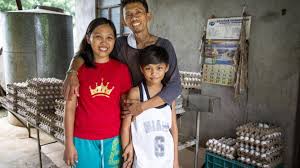- March 28, 2022
- Posted by: humanitarianweb
- Category: Humanitarian News

The number of Nicaraguan refugees and asylum seekers in Costa Rica has doubled in the last eight months, reaching more than 150,000, according to the latest figures available to UNHCR, the UN Refugee Agency. This represents a full 3 per cent of Costa Rica’s total population of five million.
These figures, as of February 2022, confirm more Nicaraguans are currently seeking protection in Costa Rica than all the refugees and asylum seekers combined during Central America’s civil wars in the 1980s, when Costa Rica was a sanctuary for those fleeing violence.
UNHCR is concerned that this trend could seriously strain Costa Rica’s already stretched asylum system and overwhelm support networks in the country.
The sharp rise in the number of asylum seekers from Nicaragua corresponds with major sociopolitical events in the country, including the November presidential elections.
Nicaraguans are also increasingly seeking protection further afield. During the first two months of 2022, the number of asylum seekers from Nicaragua arriving in Mexico is nearly one-third of the asylum claims by Nicaraguans in all of 2021.
Throughout the COVID-19 pandemic, the Government of Costa Rica has kept its borders open for those seeking international protection.
UNHCR’s border monitoring in Costa Rica reveals that many of the new asylum seekers are finding employment in the seasonal coffee harvest. However, their economic security could be compromised once the harvest is over, increasing the pressure on response institutions and UNHCR programmes.
Costa Rica is experiencing a high level of unemployment due to the pandemic-induced economic crisis. In this context, the individual support networks that provide shelter and economic opportunities to Nicaraguans are weakened, increasing the need for support from UNHCR and its partners.
UNHCR supports the Government of Costa Rica and host communities in welcoming asylum seekers and refugees through registration, legal aid, cash assistance, and donations of hygiene and cleaning kits, food and mattresses. It also provides psychosocial support, emergency shelter, vocational training, and activities to promote peaceful coexistence between refugees and the communities that host them.
At a moment when the crisis in Ukraine is making daily headlines, these figures highlight the importance of remembering other less visible situations of displacement that persist and grow around the world. We urge the international community to continue supporting Costa Rica and other countries hosting Nicaraguans in their efforts to receive and provide international protection to those who are forced to flee their country.
